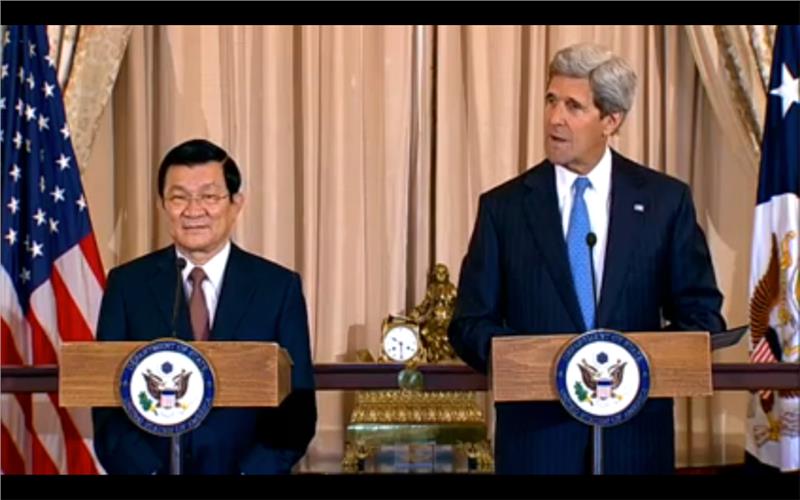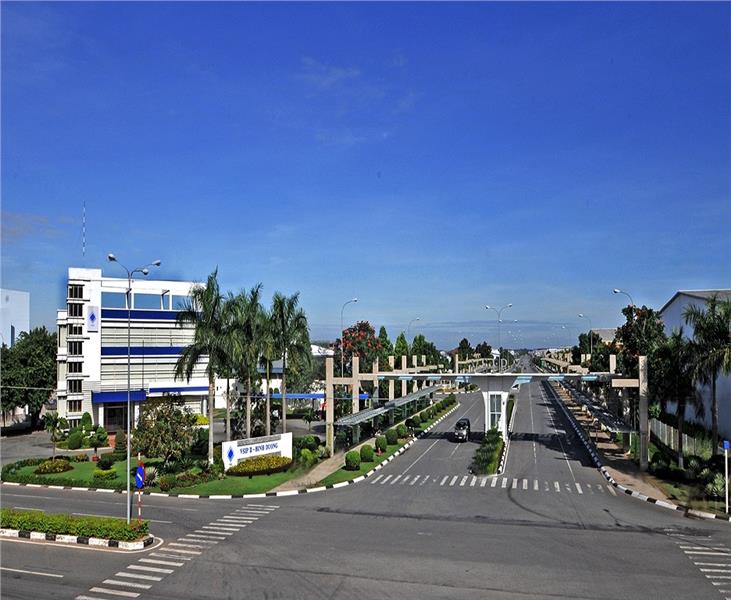As of February 2015, the United States has invested 792 projects in Vietnam with the total registered capital of US $11.035 billion, ranking 7/101 countries and continents having investment projects in Vietnam. These are impressive figures on US investment in Vietnam, which proves that Vietnam is an attractive destination for US investors to pour capital into investments in Vietnam. United States is a country investing in Vietnam in very early days, and is always in the list of major foreign investors in Vietnam. As of February 2015, the United States has invested 792 projects in Vietnam with the total registered capital of US $11.035 billion, ranking 7/101 countries and continents having investment projects in Vietnam. The average scale of an US project is about US $ 15 million, US $14.5 million higher than the average rate of a project. It proves that Vietnam business environment is appealing a large number of investors from the United State.
However, the figures do not reflect all FDI in Vietnam of the US as there are some US companies such as Intel Corporation, Coca Cola Corporation, Procter & Gamble, Chevron, and ConocoPhillips... are investing in Vietnam via branches and subsidiaries in other countries such as British Virgin Islands, Singapore, and Hong Kong... If calculating both investment capital through the 3rd countries as mentioned above, the US will be the leading investor in Vietnam. There are 25 of 500 top US companies planning to invest in large Vietnam projects. The Intel Corporation, Chevron, Starwood Hotels & Resorts, Citigroup and American Group, New York & Company, Alfonso DeMatteis, Dickerson Knight Group, and AIA ... have confirmed their place in Vietnam market. This is the best proof of the success of US investors in Vietnam, convincing US investors to Vietnam more.

US investment in Vietnam can be divided into the following stages:
The first phase (1994 - 2001): Before Bilateral Trade Agreement Vietnam - USA (BTA) was signed. In this period, a number of multinational companies came to Vietnam to lay the foundation for long-term growth opportunities such as Pepsico, Coca Cola, Cargill, 3M, Procter & Gamble, and Kimberly-Clark... US investment in Vietnam during the period concentrated on industry (heavy industry and oil & gas) and service industry. Companies establishes factories and sold products directly in Vietnam, to take advantages of cheap labor and low cost to increase competitiveness in products; however, the export was not concerned.
The second phase (2001 - -2007): When Vietnam and U.S developed bilateral trade relations with many tariff lines sharply decreasing (from 45% to 3%). FDI capital rose significantly in the fields having exports to US, especially garment, footwear, wood processing, and furniture. This contributed to raising bilateral trade between Vietnam and US from US $ 1.5 billion (2001) to US $ 24.9 billion (2012).
The third phase (2007 - 2012): When Vietnam became WTO's member. US investment in Vietnam increased strongly, including US $ 1 billion of Intel Corp in factory in Saigon Hi-tech Park, marking a milestone in changing capital from US with concentration on modern technology science application. The investment made the bilateral trade growth increase to US $ 22 billion (2011).
The fourth phase (from 2013 - now): When the US franchise companies began their presence in Vietnam: KFC, Subway, Burger King, Coffee Bean & Tea Leaf, Pizza Hut, and Pizza Domino... Many US companies invested in Vietnam with portfolio investment capital. For example, KKR invested US $359 million in Masan, and Texas Pacific Group invested US $ 50 million in Masan Agriculture to seize opportunities of retail market in Vietnam.
Currently, US investors have invested in 17/18 sectors in Vietnam economy, in which investment is mainly concentrated in hotels, resorts and dining with 17 projects with total investment capital of US $4.68 billion (about 42% of the registered capital). Processing industry ranks second with 323 projects and a total investment of US $ 2.24 million (accounting for 7% of the total registered capital of US in Vietnam). This is the sector attracting US projects in Vietnam most. Sector of real estate ranks third with 14 projects and a total investment of US $ 2.09 million (accounting for 19% of the total registered capital of US in Vietnam).

When investing in Vietnam, the majority of US investors choose the form of 100% foreign capital (accounting for 75% of the registered capital) with 593 projects and registered capital of US $8.24 billion. There are 111 joint venture projects with US $2.59 billion of registered capital (representing 24% of the registered capital). The remains are joint stock companies and business cooperation contracts. Except for the oil and gas sector, US investors present in 42/63 localities of the country, but mainly in southern key economic zones where there are favorable infrastructural conditions and the most dynamic economic development region of the country, such as Ba Ria-Vung Tau, Haiphong, Ca Mau, Ho Chi Minh City, and Binh Duong... In terms of the quantity of projects, Ho Chi Minh City attracts the most projects of US, but most of them are small-scale (298 projects with US $771 million of total investment capital, accounting for 41.8% of total projects and 6.5 total investment capital of US in Vietnam. The average scale of a FDI project of US in Ho Chi Minh City is US $2.3 million, much smaller than the average scale of US's FDI project in Vietnam.
